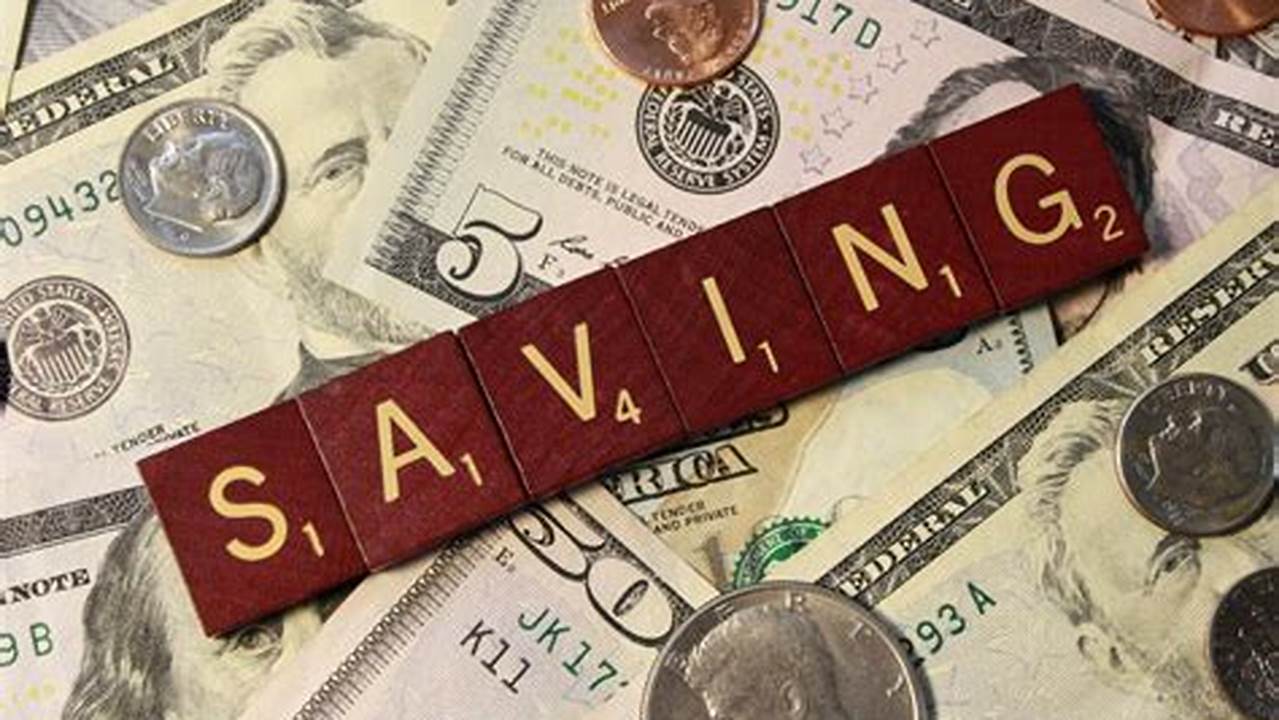
Saving money in cash refers to the practice of setting aside physical currency for future use or financial goals. Unlike digital or electronic forms of saving, cash savings involve holding tangible banknotes and coins.
Saving money in cash offers several benefits and has been practiced throughout history. It provides a sense of control over finances, as individuals can physically track their savings and avoid impulsive spending. Cash savings are less susceptible to market fluctuations or technological failures that can affect digital assets. Additionally, cash remains a widely accepted form of payment, offering flexibility and convenience in various situations.
The main article will explore various aspects of saving money in cash, including strategies for effective saving, the advantages and disadvantages of cash savings compared to other forms of saving, and tips for managing and protecting cash savings.
FAQs on Saving Money in Cash
This section addresses common questions and misconceptions surrounding the practice of saving money in cash.
Question 1: Is saving money in cash a safe and reliable method?
While cash savings provide a sense of control and avoid digital risks, they come with the risk of theft or loss. It’s essential to store cash securely and consider using a combination of cash and other saving methods.
Question 2: Are there any disadvantages to saving money in cash?
Cash savings may earn lower returns compared to some investments. Additionally, carrying large amounts of cash can be inconvenient and risky.
Question 3: How can I make the most of my cash savings?
Set clear savings goals, create a budget to track expenses, and explore options like high-yield savings accounts to maximize returns.
Question 4: Is it better to save in cash or invest?
The choice depends on individual circumstances and financial goals. Cash savings offer stability and flexibility, while investments have the potential for higher returns but also carry more risk.
Question 5: How can I protect my cash savings from theft or loss?
Consider using a safe or safety deposit box, be discreet about carrying large amounts of cash, and report any lost or stolen cash immediately.
Question 6: What are the tax implications of saving money in cash?
Cash savings are generally not subject to tax unless earned as income. However, it’s important to declare any significant cash transactions to avoid suspicion of illegal activities.
Summary: Saving money in cash has its advantages and disadvantages. By understanding these factors and implementing appropriate strategies, individuals can effectively manage and grow their cash savings.
Transition: The main article will delve deeper into the benefits, challenges, and best practices of saving money in cash.
Tips for Saving Money in Cash
Implementing effective strategies can help individuals maximize their cash savings. Here are some practical tips to consider:
Tip 1: Set Realistic Savings Goals: Determine specific financial objectives, whether short-term or long-term, and tailor your savings plan accordingly.
Tip 2: Create a Budget: Track expenses meticulously to identify areas where spending can be reduced or optimized, freeing up more funds for savings.
Tip 3: Automate Savings: Establish automatic transfers from your checking account to a dedicated savings account on a regular basis, ensuring consistent contributions.
Tip 4: Explore High-Yield Savings Accounts: Research and compare different savings accounts to find those offering competitive interest rates, maximizing returns on your cash savings.
Tip 5: Take Advantage of Cash-Back Rewards: Utilize credit cards or loyalty programs that offer cash-back rewards on purchases, effectively converting a portion of your spending into savings.
Tip 6: Negotiate Lower Bills: Contact service providers, such as utility companies or insurance providers, to inquire about potential discounts or payment plans that can reduce monthly expenses and increase disposable income for savings.
Tip 7: Embrace the Envelope System: Withdraw a specific amount of cash for essential expenses each month and allocate it into labeled envelopes. This method helps control spending and prevents overdraft.
Tip 8: Set Up a Separate Savings Account: Open a separate savings account specifically for cash deposits. This physical separation from your primary checking account discourages impulsive spending and reinforces the goal of saving.
Summary: By implementing these practical tips, individuals can develop effective strategies for saving money in cash, building financial security, and achieving their financial objectives.
Transition: The following section of this article will provide insights into the advantages and disadvantages of saving money in cash compared to other saving methods.
Conclusion
Throughout this article, we have explored the concept of saving money in cash, examining its advantages, disadvantages, and practical strategies. Cash savings offer a sense of control, flexibility, and reduced susceptibility to market fluctuations. They serve as a tangible representation of financial goals and can promote mindful spending habits.
While digital and electronic forms of saving offer convenience and potential for higher returns, cash savings remain a valuable and accessible option for many individuals. By understanding the unique benefits of cash savings and implementing effective strategies, we can harness its potential to build financial security and achieve our financial objectives. Saving money in cash remains a cornerstone of sound financial planning and a tool for long-term financial success.
